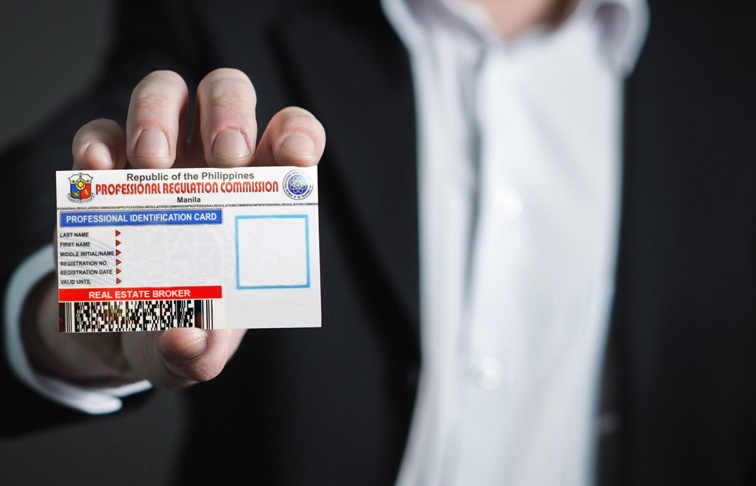Tuesday, February 17, 2026
Tuesday, February 17, 2026


The life of a typical real estate agent is not just rewarding but also very fulfilling. You get to check out fabulous homes, rub elbows with the wealthy and adopt a high-profile lifestyle. But behind the glamor and excitement are the requirements a realtor needs to complete before taking commissions and fees.
In the Philippines, real estate agents must first secure a professional license to provide specialized property buying and selling services. This is per the Implementing Rules and Regulations set by the Real Estate Services Act of the Philippines 9646.
Under RA 9646, all accredited professionals that provide services under a registered real estate broker must possess a valid license provided by the Professional Regulatory Board of Real Estate. Licensed real estate salespersons are expected to receive commissions, professional fees for their work, and other types of compensation.
Agents are not expected to pass a licensure exam like other professionals, but the PRC must endorse them under a set of guidelines.
To secure a real estate agent license, you must be a Filipino citizen (natural or naturalized). You must have finished at least 2 years or 72 units of college education and should have received real estate brokerage training or seminars. This training must total at least 12 credits. These must be completed before the accreditation process.
Aside from the mentioned qualifications, individuals who wish to become a licensed real estate agents must prepare and submit these requirements:
● Application form – download the application form from the PRC site and complete it.
● NSO birth certificate – you must submit an original copy and a photocopy.
● NSO marriage certificate – for females, you must provide an original copy and a photocopy.
● NBI clearance – you must submit a valid original NBI clearance.
● Real Estate Brokerage training certificate – you must present proof that you earned 12 credit units. The certification should be original copies and must be notarized for authenticity.
● Community Tax Certificate – current CTC.
● Recent 1x1 photo – this should be taken against a white background with a name tag with your complete name.
The application process is easy and seamless. You need to visit the Professional Regulatory Commission office or any PRC satellite or regional offices to apply.
1. Complete all the requirements needed for the application.
Ensure that you have all the requirements needed for the application before you visit the PRC Central Office or any regional office.
2. Proceed to pre-evaluation.
Visit the PRB Office of the Secretary or the Assistant Secretary or the PRC Central or Regional Offices to submit all the requirements together with the accomplished application form.
3. Pay the application fees.
There is a fee amounting to Php 600.00. This is paid at the PRC cashier on the ground floor of the Main Office Building.
4. Obtain a metered documentary stamp.
Like other professions, you must secure a metered documentary stamp attached to your application requirements.
5. Submit your application form.
Take your application papers to the Office of the Assistant Secretary or PRBs on the 3rd floor. Identification cards may not be available on the same day; you may be asked to come back at a particular time. Keep the claim stub provided at the Office of the Assistant Secretary. You need this to claim your ID.
6. Wait for Results
Check the status of your application on PRC’s site http://www.prc.gov.ph.
A real estate agent should work under the supervision of a licensed real estate broker. Because of this arrangement, a real estate agent should understand certain limitations or restrictions to his responsibilities and duties.
● Real estate agents are not allowed to be signatories to an agreement regarding any transaction involving real estate properties. But if the real estate broker salesperson who directly supervises the agent is also a signatory, the real estate agent may become a signatory to the transaction.
● A real estate agent should secure accreditation to negotiate, transact or mediate in any kind of real estate transaction on behalf of his broker.
● A real estate broker cannot secure the services of a real estate agent unless he secures accreditation from the PRB-RES. The broker salesperson should secure this accreditation before the agent is employed. Doing so is a violation of real estate law.
● A real estate agent will receive a commission, fees, or compensation only from the licensed broker that he is working for. The broker has direct supervision and control over his salesman real estate agent and thus, he has accurate knowledge of the agent’s commissions and fees.
Real estate law not only protects a licensed salesperson from unjust compensation but also secures the professional expertise and qualities of an agent for different kinds of property transactions.
Related Articles :
Back To Home Essential Skills You Need to Develop to Become a Successful Licensed Real Estate Broker
Join our mailing list to get the latest list of our available units, promos and newsletter!